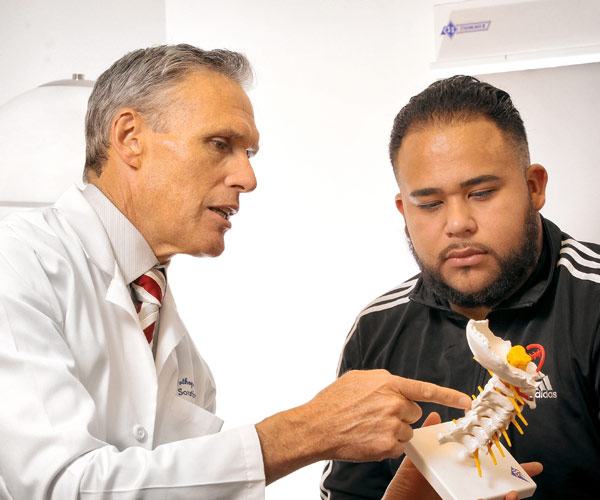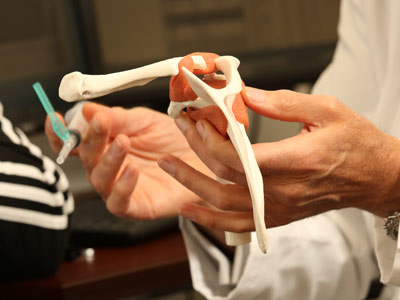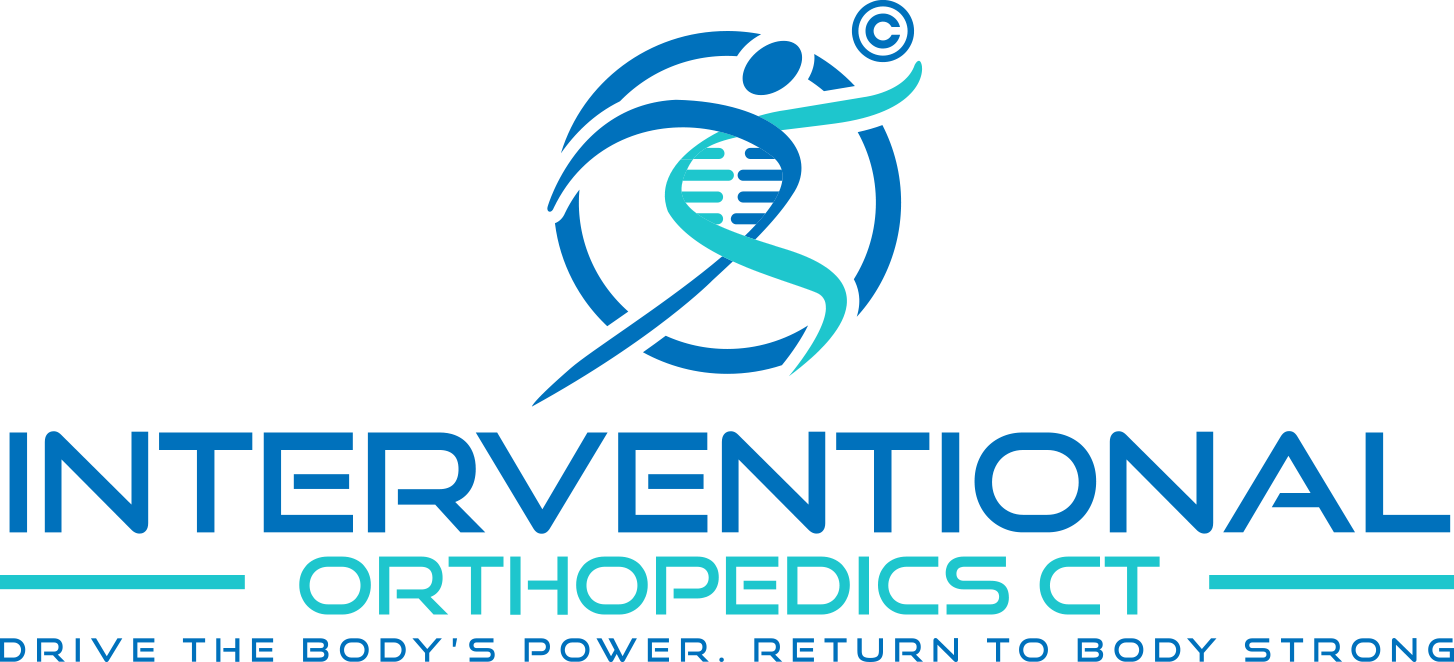Degenerative Disc Disease

About Degenerative Disc Disease
Disc degeneration is a natural part of aging, and over time all people will exhibit changes in their discs consistent with some degree of degeneration. However, not all people will develop symptoms. In fact, degenerative disc disease is quite variable in its nature and severity. Degenerative Disc Disease (DDD) describes the symptoms of pain and debility that may result from disc degeneration.
Symptoms of Degenerative Disc Disease
DDD generally results in fairly consistent neck and back pain symptoms for most patients. The amount of chronic pain, or baseline pain, is quite variable between patients and can range from just a nagging level of irritation, to severe and disabling pain. There may be severe episodes of back or neck pain that will generally last from a few days to a few months before returning to your baseline level of chronic pain. Patients find that certain activities that involve bending, lifting, and twisting, as well as certain positions-such as prolonged sitting-will usually make the pain worse. Walking, changing position and even running will lessen the pain as will lying in reclining position.
Causes of Degenerative Disc Disease
DDD can be caused by the natural aging changes that occur in your spine. With age, discs dry out, lose height and their ability to provide a cushion between the bones of the spine. The thick cartilage of the disc begins to fray and painful tears can occur. Accidents and falls can result in injury to discs that can spur degeneration but, more commonly, simple, accumulated wear and tear over time can lead to discogenic back and/or neck pain.
Non Surgical Treatment for Degenerated Discs
Since most types of surgery for ongoing, debilitating pain and loss of function from degenerative disc disease are fairly extensive and require considerable recovery and rehabilitation periods, it is usually best to manage low back pain and neck pain from degenerative disc disease with non surgical approaches. The main goals are to provide pain relief and improved mobility and range of motion. Typical non surgical treatment for degenerated discs includes exercise and changing activities to avoid prolonged sitting. Getting stronger in the middle, neck, and shoulders can provide support to painful discs and help by reducing the load placed on them. A dedicated stretching program can also help to reduce stress on painful discs. Chiropractic treatment, traction, and acupuncture can relieve symptoms for short periods of time. Oral anti-inflammatory and pain medications can help facilitate participation in painful activities but when used on a daily basis carry significant health risks.
To learn more and get help for degenerated discs please Schedule an Appointment with Regenerative Orthopedic & Sports Medicine Specialist Daniel Southern, M.D. in Danbury or Wilton in Fairfield County Connecticut by calling 203-456-5717.


Surgical Treatment for Degenerated Discs
Patients who are simply unable to function because of the pain or who are frustrated with their activity limitations may consider lumbar or cervical spinal fusion surgery for symptomatic degenerative disc disease. Spinal fusion surgery is designed to reduce the pain because it stops the motion at a painful motion segment. A newer surgery to treat pain and disability from degenerative disc disease is artificial disc replacement. The theory is that replacing the disc, instead of fusing the disc space together, maintains more of the normal motion in the lumbar or cervical spine, thereby reducing the chance that adjacent levels of the spine will break down due to increased stress. In general, recovery time and rehabilitation from surgical treatment for degenerated discs can be somewhat lengthy and uncomfortable requiring careful pain management.
To learn more and get help for degenerated discs please Schedule an Appointment with Regenerative Orthopedic & Sports Medicine Specialist Daniel Southern, M.D. in Danbury or Wilton in Fairfield County Connecticut by calling 203-456-5717.
Regenerative Orthopedic Medicine Treatment for Degenerative Disc Disease
Regenerative procedures provide non-surgical treatment options for those suffering from pain related to osteoarthritis, joint injuries, spine pain, overuse conditions, and common sports injuries. These medical procedures are performed by highly-skilled doctors and are used to help reduce pain and improve function. They may help improve your quality of life, return to the activities you enjoy, and avoid the need for surgery or joint replacement*.
*DISCLAIMER: Like all medical procedures, regenerative procedures have a success and failure rate. Patient reviews and testimonials on this site should not be interpreted as a statement on the effectiveness of our treatments for anyone else.

